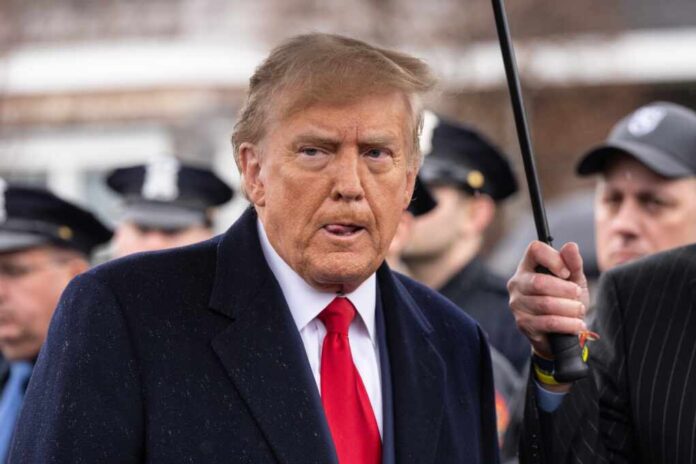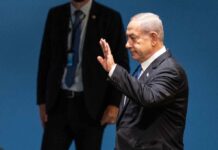
The U.S. ramps up its military presence in the Middle East amid the escalating Iran-Israel tensions. What strategic moves are being contemplated behind closed doors?
At a Glance
- President Trump assesses military options against Iran.
- U.S. bolsters military readiness amid Middle East conflict.
- Tensions impact Trump’s broader foreign policy agenda.
- Geopolitical turmoil affects global stock market stability.
Geopolitical Tensions Spike
The escalating conflict between Iran and Israel has prompted the U.S. to boost its military positioning as part of a larger strategic plan to counter potential threats from Iran. President Trump is keenly observing the situation, considering various military strategies to support Israel and deter Iran’s nuclear ambitions. The increased U.S. military presence sends a clear signal of America’s resolve to protect its interests and allies in the volatile Middle East region.
Former President Donald Trump’s focus on the Iran-Israel conflict led him to shorten his appearance at an international summit in Canada. The crisis in the Middle East has started to overshadow his engagements with other global leaders, including a planned meeting with Ukraine’s leader. This intense situation significantly impacts Trump’s broader foreign policy agenda, where he has attempted to mediate peace but is now considering military intervention to aid Israel.
Complexities of Foreign Policy
The geopolitical volatility triggered by the Iran-Israel exchange has not only threatened peace but has also caused ripples across global financial markets, leading to a significant stock market decline. President Trump faces considerable challenges as he navigates these multifaceted international conflicts. Critics, including former officials like John Bolton, assert that Trump struggles with the complexities of these conflicts, expressing skepticism about the President’s decision-making capabilities.
“I do think he’s genuinely confused about what his best option is,” said John Bolton. “This was not supposed to happen this way. There were supposed to be more negotiations” over dismantling Iran’s nuclear program. – John Bolton
As the U.S. enhances its military assets near the Middle East, questions about America’s foreign policy arise. Not all members of Trump’s MAGA base endorse this move, reflecting a divide within the Republican party. Vice President JD Vance is working to mend this rift by addressing the differing opinions concerning foreign interventions.
Strategic Military Positioning
Faced with intense regional pressure, President Trump has taken measures to fortify America’s military stance, reducing the National Security Council staff and assigning key diplomatic tasks to representatives from outside the typical foreign policy sphere. This has raised concerns about coordination and trust within the national security team, especially with Secretary of State Marco Rubio leading the National Security Council.
“The U.S. is positioning military assets near the Middle East as tensions rise between Israel and Iran and as more details emerge about President Trump’s decisions to join operations against Iran’s nuclear sites. CBS News’ Charlie D’Agata has more.” – Charlie D’Agata.
In the face of escalating danger, Prime Minister Benjamin Netanyahu has urged Trump to consider military intervention. With tensions reaching a boiling point, the decisions taken in the coming days could significantly shape the geopolitical landscape of the Middle East, directly involving the United States in the quest to thwart Iran’s nuclear pursuits.

























